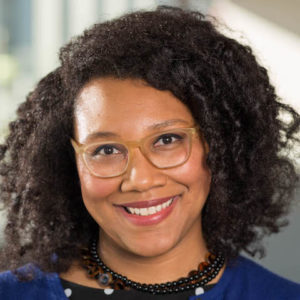A new study led by Natalia Neha Khosla, a graduate of Yale University and a second-year student at University of Chicago’s Pritzker School of Medicine, found that doctors and other healthcare providers rated White patients as significantly more likely to improve and more likely to adhere to recommended treatments than Black patients. The healthcare providers also believed that White patients would be more personally responsible for their health than Black patients.
“Clinicians tended to see Black patients as less likely to take responsibility for their health, less likely to follow treatment recommendations, and less likely to get better,” Khosla explained. “Science and medicine are not invulnerable to the effects of racism, because we are humans and are shaped by our environment.”
 Sylvia Perry, an assistant professor of psychology at Northwestern University and a co-author of the study, says that “we need to continue to examine if medical providers have preferences for some groups over others, either implicit or explicit, and how that affects treatment, expectation for patient success, and interactions with patients.”
Sylvia Perry, an assistant professor of psychology at Northwestern University and a co-author of the study, says that “we need to continue to examine if medical providers have preferences for some groups over others, either implicit or explicit, and how that affects treatment, expectation for patient success, and interactions with patients.”
Dr. Perry joined the faculty at Northwestern University in 2016 after teaching at the University of Vermont. She is a graduate of the University of North Texas and holds a master’s degree and a Ph.D. in psychology from the University of Illinois at Chicago.
The authors conducted a similar study in France and found no racial bias in doctor’s views about their patients’ adherence to recommended treatments.
The full study, “A Comparison of Clinicians’ Racial Biases in the United States and France,” was published on the website of the journal Social Science & Medicine. It may be accessed here.


Interesting. Could it be that health care providers overtime have seen blacks not comply with their recommendations and take actions in improving their health, thus carrying forth these low expectations? I dont think this is racial bias if overtime health care providers have observed this behavior from blacks and unconsciously or consciously placed implicit low health expectations on them.
I use to work at a community health clinic and remembered the nurse saying that a black male patient was a ticking time bomb for major health problems due to him continually seeing her the same preventative condition that could be avoided had he followed instructions to improve his health.
Jah and Jahnes love. I am grateful for this study. The findings confirm my experiences with the Allopathic Medical Establishment. For example, I suffered for years with severe menstrual cramps and I was told that it was normal. And even the Haitian (Male) doctor whom my family had me visit (which was paid for with cash!) told me that the severe pains were normal. I was forced to accept that my family members who told me that the pains would go away once I had children. I was determined to cure myself without getting pregnant because I wasn’t in love nor did I have the financial support to have a child, so I didn’t take that option. I used Natural Remedies, I mostly changed my diet and became a Vegan, Beegan, and Raw Vegan and that finally cured all of my symptoms including my infertility. My problems with the Allopathic Medical Systems persisted through all of the 5 pregnancies that I experienced. I even lost one child who was born still. I was able to get care by local Midwives in Miami and that helped me to deliver 3 healthy boys. But, I didn’t get to see any Medical professional when I was pregnant with my daughter. I had not been able to qualify for Medicaid in Florida and so I had her alone. I believe that my lack of Private Insurance along with my low financial status discouraged the health care practitioners with whom I interacted from giving me the proper help. I also don’t feel that the findings of the study in France are accurate. There is a lot of bias against impoverished, homeless and black people in France. I have lived as a homeless person since 2014 in the Street of Paris. I had to get emergency Medical Care a few times and my interactions with the staff at the hospital were similar to what I experienced in NYC. So, I am sure that there was no person of Ayiti descent on the Research Team and perhaps there was also no BLACK person either. Blessed love.